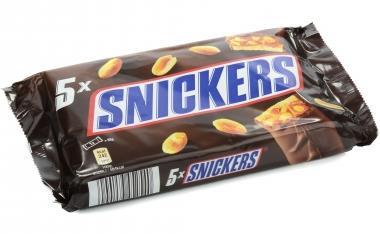‘Plastic pieces are the most difficult to detect’

Confectioner Mars has recalled millions of Mars, Snickers and Milky Way bars after a customer discovered a small piece of plastic in a Snickers bar in Germany.
The plastic was traced back to a faulty machine in a factory in the Netherlands and the recall was made across 55 countries.
Allianz Global Corporate & Specialty (AGCS) head of global crisis management Christof Bentele (pictured) explains why food recalls are on the rise and how insurance can help.
Q: Are foreign objects a common cause of food recalls?
A: Yes, indeed. Plastic pieces, in particular, are most difficult to detect in comparison to other materials, such as metals, which are easily flagged with metal detectors.
In most cases, contamination is caused by a very small piece in production machinery failing and breaking; other sources may include objects used in the cleaning process or fragments which have fallen into the production line by mere accident.
Regardless, no matter how small the piece or contaminant, reputable companies want to ensure consumer safety and existing food safety regulations enforce such action.
Q. Mars has recalled millions of products even though only a very small number may actually be affected. Why is this?
A: Given today’s mass production, a widespread recall does not mean that all products are contaminated, but, rather, a mass recall reflects a highly concentrated production source, with high output levels. As such, the most prudent approach for a manufacturer to take is to recall any product which could have potentially been affected during a production run, or that has been created by a faulty machine.
Q: How often do food product recalls happen?
A: We have recently seen an increasing number of product recalls of food and beverage products, with both increasing geographical reach and financial gravity. This is driven by growing supply chains, tightening of consumer safety regulations and also the faster dissemination of information around the globe.
The impact of a food contamination can be devastating for the company, as food and beverage is generally regarded as an ‘emotional’ product with a strong brand recognition. If something goes wrong, the impact can significantly damage a brand and a company’s overall reputation. But if a recall following a product contamination incident is professionally managed, it can help to minimise reputational damage and, in a best case scenario, even build consumer confidence and trust.
Q: How can insurance support affected companies?
A: Contaminated Products Insurance provides cover for recall costs, loss of gross profits and rehabilitation costs following either accidental or malicious contamination (whether actual or threatened), governmental recall and adverse publicity implying a product were contaminated when in reality is wasn’t. Some policies also provide crisis management assistance, including technical, legal/regulatory and communications considerations of a product recall.




















No comments yet